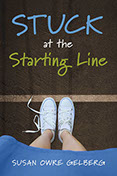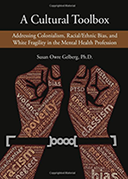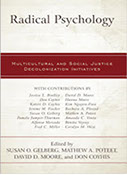BOOKS TO BUY
STUCK AT THE STARTING LINE
A young girl's journey out of extreme anxiety
AGE LEVEL 13 - 18
SUMMARY
Although this book takes place in the 1960's, many girls today experience confusion and anxiety about whether they will be able to have a positive romantic relationship with a boy. The story is about how sixteen-year old Diana Campbell gets off to a happy start with Steven Erickson, a boy she meets in Canada while vacationing with her family on their island in Rainy Lake. He is respectful, affectionate, and careful to ask her before they share a first kiss.
During the year at home after that summer, however, she makes a bad decision to go out with a Bill Moore, a boy who is has dated many girls. On their first date, Bill expects her to move more quickly into physical intimacy than she is comfortable with. Because he keeps pressuring her on that first date, her refusal to do so makes him angry, and he ends the date. Later that night and in the weeks after the date with Bill, she questions her ability to date any boy. She continues to write Steven, but she begins to wonder if he will also expect the kind of things Bill pressured her
to do.Her anxiety symptoms make it difficult for her get through the day. She stops dating and withdraws from everyone but her closest friend, Laura. She has little awareness that her symptoms are in part due to her date with a boy who did not consider her feelings and instead insisted on trying to force her to do whatever he wanted her to do. Initially, she is unable to reach out for help with her anxiety, but she eventually discusses her misgivings with her older sister, Julia.
Her sister helps her see that she needs to develop the ability to think for herself rather than bend to the pressures of others. Because Julia is more experienced than she is, she gives Diana advice on how to effectively navigate through the process of meeting boys, making decisions about whether she wants to get to know them, and being able to follow her own instincts with self-confidence.
CULTURAL TOOLBOX
Addressing Colonialism, Racial/Ethnic Bias, and White Fragility in the Mental Health Profession
QUICK SUMMARY
A practical guide designed to:
• Help mental health professionals conduct in-depth cultural self-assessments in order to identify and address cultural stereotypes, biases, and Western colonizing counseling practices.
• Help avoid Eurocentric practices that can harm clients from other cultures; suggest additional client self-assessments and resource materials.
• Help present a variety of cultural viewpoints about culture and mental health through brief chapter contributions by individuals who hold diverse world views.
• Discuss research regarding the impact of cultural violence on mental health providers & their clients.
Includes:
• Reflective topics
• Journaling opportunities
• Illustrations
• Clinical anecdotes
• Essays, extensive resource lists
• Photographs to complement
the text• A practical, easy-too-read,
and user-friendly resource

RADICAL PSYCHOLOGY
Multicultural and Social Justice Decolonization Initiatives
QUICK SUMMARY
Radical Psychology discusses psychological factors that shape multicultural competency and social justice effectiveness, such as implicit and explicit biases, difficulties in accurate self-assessment of cultural competency and social justice skills, and the historical colonial biases that still shape Western psychological training and practice.
A challenging balance between research and professional reflections to appeal to readers with different cultural backgrounds and different learning styles. The diversity of the contributors underscores the emphasis on the need to include cultural experts as side-by-side colleagues, consultants, and supervisors to help Western psychologists expand their professional cultural paradigms and world views.



